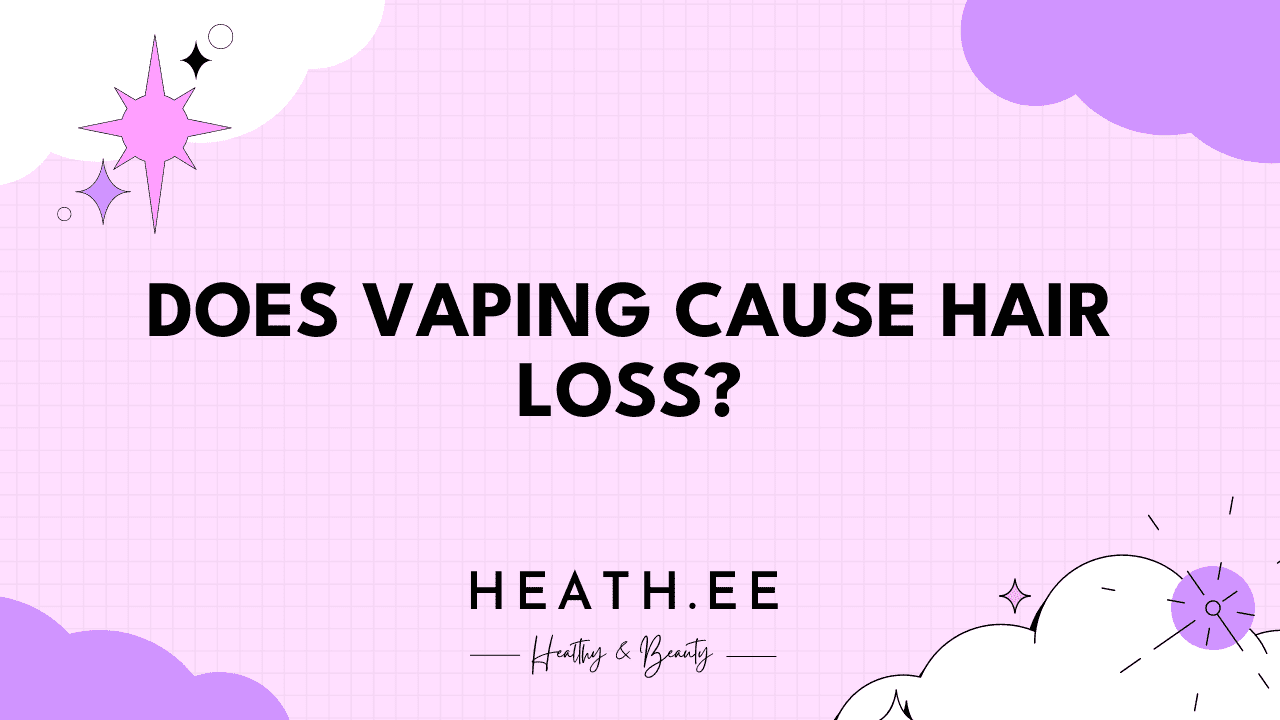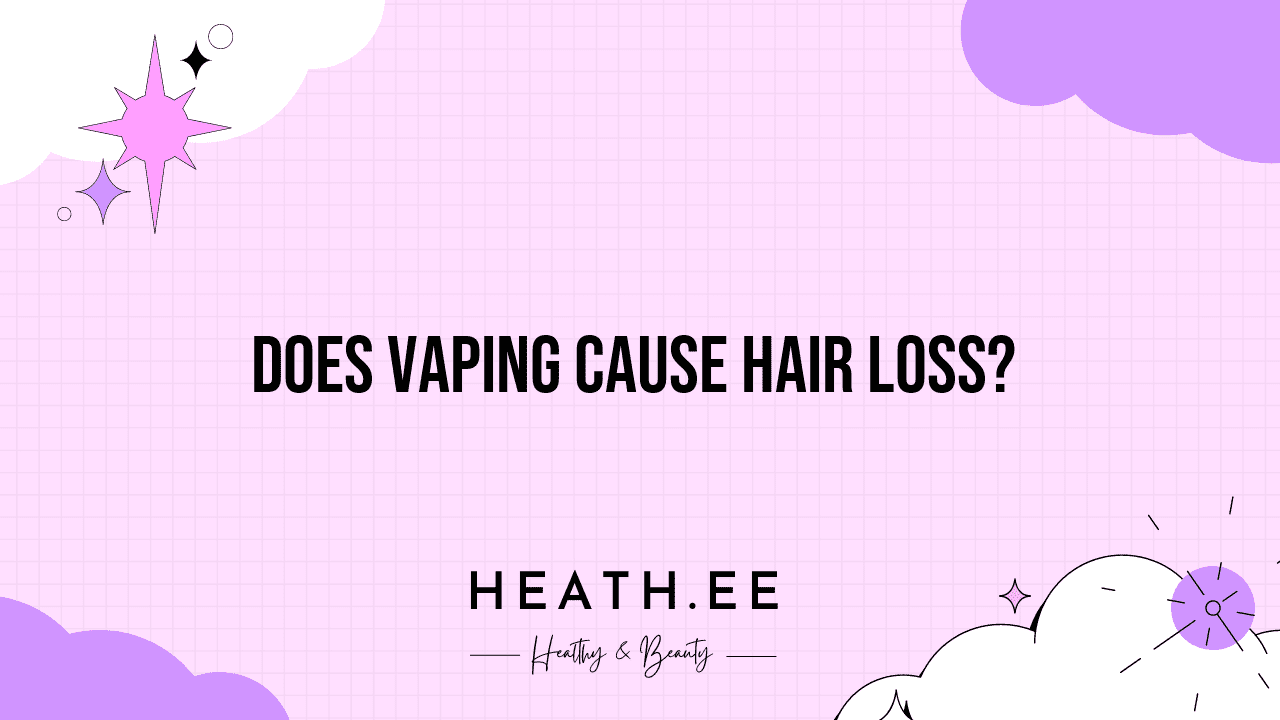Vaping has become increasingly popular in recent years, with many people turning to it as an alternative to smoking cigarettes. But is there any truth to the rumors that vaping can cause hair loss? This article will explore the potential links between vaping and hair loss, and what you should know if you’re considering taking up vaping.
What is Vaping?
Vaping is the act of inhaling and exhaling vapor produced by an electronic device, such as an e-cigarette. The device heats up a liquid, which then evaporates and creates an aerosol. This aerosol is then breathed in and out.
Vaping is often used as an alternative to smoking traditional cigarettes. It is believed to be less harmful than smoking, as it does not involve the inhalation of smoke. However, there is still much debate about the safety of vaping, and more research is needed.

Does Vaping Cause Hair Loss?
The short answer is that there is no definitive answer on whether vaping causes hair loss. While there is some evidence that suggests vaping could contribute to hair loss, more research is needed to confirm this.
One study found that vaping was associated with an increased risk of male pattern baldness. The study looked at the vaping habits of over 3,000 men and found that those who vaped were more likely to experience hair loss than those who did not.
However, it is important to note that this study only looked at association, not causation. This means that while the study found an association between vaping and hair loss, it does not prove that vaping actually causes hair loss.
What Are the Other Potential Causes of Hair Loss?
Hair loss can be caused by a variety of factors, including genetics, age, stress, and certain medical conditions.
Genetics can play a role in hair loss, as some people are more likely to experience hair loss due to their family history. Age is also a factor, as hair loss is more common in older people. Stress can also lead to hair loss, as can certain medical conditions, such as alopecia or thyroid disease.

What Should I Do If I’m Experiencing Hair Loss?
If you are experiencing hair loss, it is important to speak to a doctor or healthcare professional. They will be able to assess your individual situation and provide advice and treatment options.
It is also important to remember that hair loss is a natural part of the aging process for many people. If you are concerned about your hair loss, it is important to speak to a doctor or healthcare professional, as they will be able to provide advice and treatment options.
What Are the Potential Benefits of Vaping?
While there is still much debate about the safety of vaping, there are some potential benefits.
Vaping is believed to be less harmful than smoking traditional cigarettes, as it does not involve the inhalation of smoke. It is also believed to be less addictive than smoking, as it does not contain nicotine.
Vaping is also believed to be less expensive than smoking, as you do not need to buy cigarettes or tobacco. Additionally, there are a variety of flavors available, which can make vaping more enjoyable than smoking.
What Are the Potential Risks of Vaping?
While there are some potential benefits to vaping, there are also some potential risks.
Vaping is still a relatively new activity, and more research is needed to understand the long-term effects. There is some evidence that suggests that vaping can be harmful to your health, as it can contain harmful chemicals and toxins.
It is also important to remember that vaping can be addictive. As it contains nicotine, it can be difficult to quit vaping once you start.
Final Thoughts
Vaping has become increasingly popular in recent years, with many people turning to it as an alternative to smoking cigarettes. While there is some evidence that suggests vaping could contribute to hair loss, more research is needed to confirm this.
It is also important to remember that there are potential risks to vaping, such as the inhalation of harmful chemicals and toxins, and the risk of addiction. If you are considering taking up vaping, it is important to speak to a doctor or healthcare professional first, as they will be able to provide advice and treatment options.



